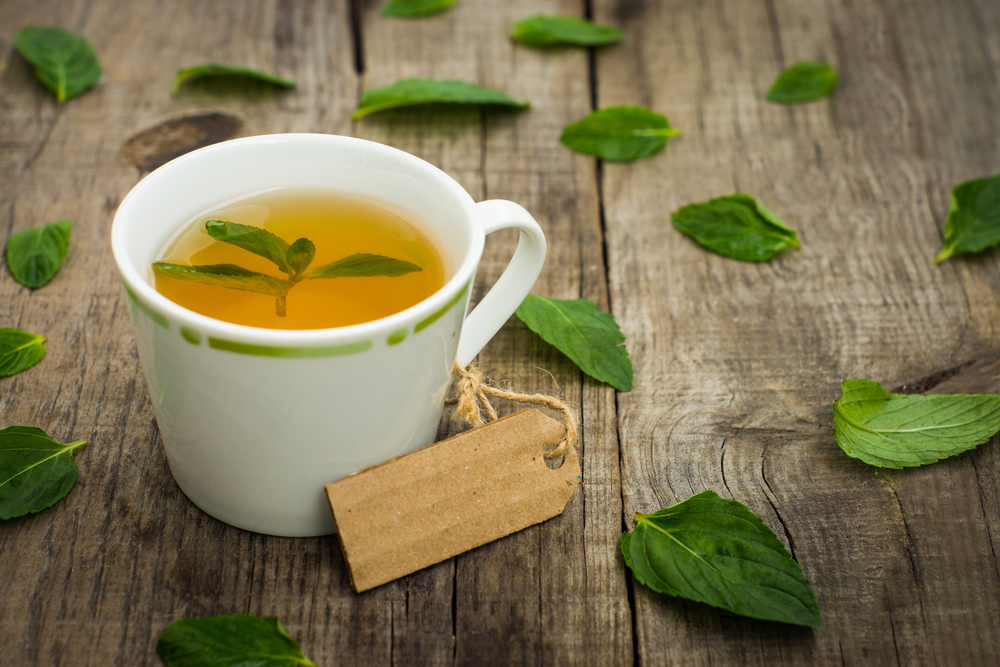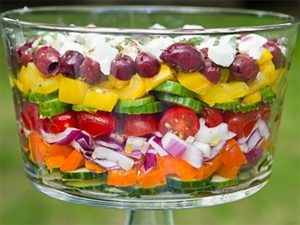Healing Herbs 101

Garden herbs, even the most common and easiest to grow, have long been known for their medicinal qualities. Some people even think herbs were used to prevent and cure the black plague. Now that’s a powerful garden. So here are some of the healthiest herbs that you might just have in your garden or kitchen cabinets:
Mint
Mint is great for digestion and stomachaches. It’s used to treat cirrhosis of the liver, bad breath, diarrhea and diverticulitis pain. Many sleepy time teas are made with mint; it’s a cure for insomnia. This herb can also be used for sore throats, fevers, coughs, kidney stones and cataracts. You can also rub it into the scalp for a natural shampoo.
Basil
If you experience regular stomach pains, try drinking a glass of basil and water after meals. Basil is used as a natural sedative that also strengthens the nervous system and gets rid of anxiety. It stimulates the digestive system as well as milk glands in nursing mothers. And if you’re feeling really sick, take some basil to keep from throwing up. And if you suffer from Restless Leg Syndrome, take a bath with basil in the water.
Chives
Chives are amazing for people with colds. They are high in folic acid and vitamin C, and they’re also an antibacterial. Chives have been known to clear a stuffy nose, prevent sickness and lower your cholesterol. Plus, chives are a good source of potassium, calcium and iron.
Tarragon
Tarragon is an anti-inflammatory used to treat Type II Diabetes. It acts as a blood thinner, which prevents cardiac disease and treats thrombosis, a disorder affecting the circulatory system. It acts as a sedative in cases of insomnia and nervousness, and relieves toothaches and muscle pain. However, in very high doses, Tarragon becomes a carcinogenic. You’re fine to cook with Tarragon but avoid the concentrated essential oils.
Cilantro
Cilantro is a delicious stimulant for lack of appetite in anorexic patients. It’s also used for those with sensitive livers and respiratory tract infections. It’s an herb that cleanses the body, so you might want to take cilantro if you have the flu or high cholesterol. Cilantro has been known to prevent colon, digestive and stomach cancers. And bonus, it’s an aphrodisiac.
Thyme
Thyme may be a popular garden ground cover, but it’s also an extremely powerful antiseptic. So you’ll want to use to on everything from a sore throat to an infection to fever or pain. It’s known to help with angina and other chest pains. It’s also an antibacterial used to treat gonorrhea and amenorrhea, or the lack of menstruation. It helps with memory loss and can be used topically to treat cuts, scarring, black, purple or ingrown nails, acne and fibromyalgia.
Rosemary
Rosemary is used for respiratory illnesses like colds and bronchitis. It’s used to treat liver disease and, if you start to see the room spinning, take Rosemary for vertigo or dizziness. It also helps with gull bladder illnesses like jaundice and can bring back your natural colouring. Rosemary is used to treat liver disease, pain and anemia, and has been linked as a possible treatment for Alzheimer’s disease. Who knew?
Parsley
Parsley can break up a gall or kidney stone as well as help in treating jaundice, obesity, rheumatic arthritis, and heart illnesses. If you’ve started menopause, Parsley can increase your estrogen production, which also helps with urinary tract infections. You can Parsley externally as an eyewash for tired eyes, and a salve for bruising, acne, skin spots and broken veins. However, in very high doses it can cause problems with liver and kidney function, so you’ll want to watch your health closely.
Oregano
Oregano kills the bacteria causing food poisoning, so you won’t have to worry about that anymore. It’s also an anti-inflammatory that stops infection and reduces menstruation pain. It can be used to improve memory loss and externally it disinfects wounds, prevents tonsillitis and treats inflammation of the joints. But in very high doses, Oregano becomes a narcotic. Stay away from the essential oils, but feel free to cook with Oregano.
Sage
Sage is known to decrease the levels of sugar in the body, so it’s good for those with diabetes. It also gets rid of colds, coughs, cellulite and the herpes bacteria, and can be used to cure obesity. Sage is used to treat irritable colons, and if you don’t like to use deodorant, drinking a glass of water with sage acts as an antiperspirant.













